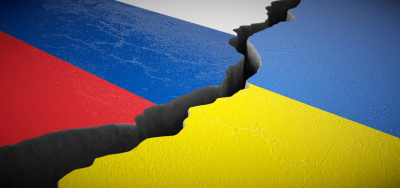Biden Affirms US Readiness to Respond to Imaginary “Russian Invasion” of Ukraine

All Global Research articles can be read in 51 languages by activating the “Translate Website” drop down menu on the top banner of our home page (Desktop version).
To receive Global Research’s Daily Newsletter (selected articles), click here.
Visit and follow us on Instagram at @globalresearch_crg.
***
During a telephone conversation with his Ukrainian counterpart Volodymyr Zelensky, US President Joe Biden promised that his country and its allies would give a decisive response to any “invasion” attempt by Russia and reaffirmed Washington’s commitment to the sovereignty and territorial integrity of Ukraine. The two leaders expressed support for simultaneous diplomatic efforts at the upcoming bilateral dialogue on strategic stability through the mechanisms of the NATO-Russia Council and the Organization for Security and Cooperation in Europe (OSCE). Biden also stressed the commitment of the US and its allies to the principle of “nothing about Ukraine without Ukraine.”
Negotiations on security guarantees will take place in Geneva on January 9-10 with the participation of Russia and the US and in Vienna on January 13 with the participation of Moscow and the OSCE. Biden and Russian President Vladimir Putin will monitor their progress and give instructions to the negotiating teams, with both presidents’ hoping to enable a new era in Russo-American relations, according to their own visions of course.
However, Biden’s strong diplomatic commitment to Ukraine comes as authorities in Kiev decided to stop the water supply to the Luhansk Peoples Republic from filtering stations due to a supposed accident. It is noted that the water supply was stopped on the evening of January 2 for supposed damage to the main water pipe from the filtering station. As a result, water practically ceased to flow to the cities and oblasts of Perevalsky, Alchevsk, Bryanka, Kirovsk, Stakhanov and Pervomaisk.
Earlier, the deputy of the People’s Council of the self-proclaimed Donetsk People’s Republic, Vladislav Berdichevsky, said that Ukraine could poison the drinking water that comes to the Donbass region from territories controlled by Kiev’s military forces.
Meanwhile, Ukraine will be forced to steal Russian gas from the transit stream if Naftogaz does not provide sufficient imports and reserves, according to Andrei Kobolev, the former head of the state-owned and largest Ukrainian national oil and gas company. In his opinion, gas consumption in Ukraine will reach the indicators of February 2020. In this case, Naftogaz will not be able to cover the demand due to the deficit of imports from the European Union.
Kobolev predicted that with this development, Russia would stop transit through Ukraine and immediately terminate the current contract. This would mean that Kiev will lose billions of dollars in transit fees. He added that this would speed up the launch of the Nord Stream 2 pipeline and encourage Gazprom to abandon Ukrainian transit with the “tacit consent” of Western countries.
Earlier on January 3, Russian Deputy Foreign Minister Alexander Pankin said that Russia is not obliged to supply all of Europe’s gas through Ukraine. On the morning of January 3, it was reported that the transit of Russian gas through Ukraine to Slovakia dropped sharply again – on January 2, it fell by almost 30%.
It is likely that Biden will attempt to weaponize the current gas flow situation to try and gain concessions from Russia during the negotiation process. However, as Biden portrays himself as a champion of human rights, he too will face pressure from the Russian side as his Ukrainian allies continue to violate international law by cutting the supply of water to civilians in Donbass.
In this way, although Zelensky secured US support in the unlikely event that Russia invades Ukraine, something that Moscow has stressed it has no interest in, he has put Biden in an awkward situation as his negotiation team will be forced to answer why Washington’s great ally is continually violating international law against Donbass civilians.
It is recalled that Kiev again violated the provisions of the 1992 Convention on the Protection and Use of Transboundary Watercourses and International Lakes in August 2021 by cutting the supply of water to Crimea. Therefore, the weaponization of water, in violation of international law and human rights, is a consistent strategy employed by Kiev against Donbass and Crimea, something that Biden’s negotiation team will struggle to defend during their discussions with the Russian side, and something that actually puts them in a weaker position in terms of postulating morality.
*
Note to readers: Please click the share buttons above or below. Follow us on Instagram, @crg_globalresearch. Forward this article to your email lists. Crosspost on your blog site, internet forums. etc.
Paul Antonopoulos is an independent geopolitical analyst.
Featured image is from epthinktank.eu

